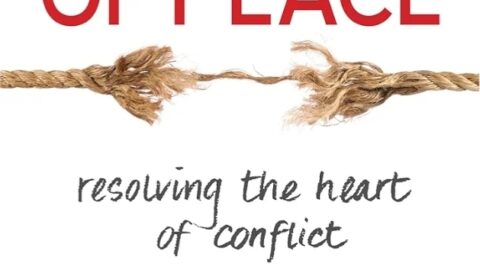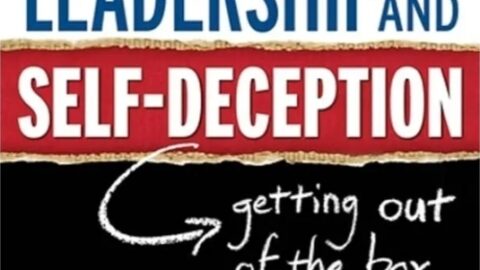Core Question: Are we the roles we’re assigned—or the virtues we choose?
Tagline (spirit): “I’m bad, and that’s good… there’s no one I’d rather be than me.”
Role, Reputation, and the Hunger to Belong
Moral Core: Social labeling vs. intrinsic worth
Ralph is the designated “bad guy” in Fix-It Felix, Jr. He wrecks; Felix fixes. After 30 years of being ostracized (living in the dump, not invited to parties), Ralph wants a medal—a visible token of goodness—to gain acceptance. The Nicelanders equate role with moral identity; Ralph internalizes their judgment and tries to escape his narrative.
Lessons
- Roles are functional, not ontological; doing a job (even the villain’s) doesn’t define your worth.
- Belonging by performance (the medal) is brittle; communities that moralize roles create exile.
- Alienation can provoke destructive compensations (rule-breaking, denial).
Philosophical Frame
- Labeling theory (sociology): Social roles shape self-concept and behavior.
- Existentialism: Authentic identity must be chosen, not conferred by the crowd.
Medal Mania and the Economics of Value
Moral Core: Counterfeit virtue and the quest for symbolic capital
Ralph game-hops to Hero’s Duty to steal a medal. The shooter’s world embodies merit-by-survival: grit, fear, and glory. Ralph obtains the medal but accidentally unleashes a Cy-Bug (a virus-like creature) that follows him into Sugar Rush, a candy-coated kart racer ruled by King Candy.
There, Ralph meets Vanellope von Schweetz, a glitch ostracized from racing. She wants to “be a racer”; he wants a medal. Both seek recognition rather than relationship—at first.
Lessons
- Symbols (medals, crowns) are currency in status economies; they can’t substitute for character.
- Escaping one’s role without virtue growth just relocates the problem.
- The marginalized (Vanellope) reveal how systems enforce respectability politics.
Philosophical Frame
- Bourdieu’s symbolic capital: Tokens stand in for social value.
- Pragmatism: Outcomes test beliefs—medal ≠ meaning.
Friendship, Glitch, and the Ethics of Truth
Moral Core: Becoming good by doing good
Ralph and Vanellope strike a deal: he’ll help her build a kart; she’ll share her winnings (a medal-like payoff). Felix and Sergeant Calhoun (from Hero’s Duty) form a parallel arc: discipline + compassion. As Ralph and Vanellope bond, King Candy warns Ralph that Vanellope’s racing will cause game unplugging—everyone loses. Ralph, panicking, destroys Vanellope’s kart “for her own good.” It’s a paternalistic lie that wounds love.
Lessons
- Good intentions do not license deception—love without truth becomes control.
- Friendship requires risking status for the other’s flourishing.
- Real goodness emerges from habits (helping, training, telling the truth).
Philosophical Frame
- Kantian ethics: Treat persons as ends, not means—even for “protection.”
- Aristotle’s philia: Friendship perfects virtue through shared action.
Revelation: Tyranny by Narrative Control
Moral Core: Power maintains itself by editing memory
King Candy is revealed as Turbo, an archaic racer who “game-hopped,” hijacked Sugar Rush, rewrote its code, and deleted Vanellope’s identity to protect his reign. Meanwhile the Cy-Bugs metastasize—an existential threat to every game.
Lessons
- Authoritarians centralize power by controlling story and memory (propaganda, erasure).
- Marginalization is often engineered, not accidental.
- Truth is liberative code—restoring memory restores justice.
Philosophical Frame
- Arendt & Orwell: Totalitarians monopolize narrative to manufacture consent.
- Personalism: Dignity resides in the person, not in socially granted titles.
Sacrifice, Identity, and the Right Kind of “Bad”
Moral Core: Vocation over validation
With Sugar Rush swarmed, the only solution is a beacon—a self-sacrifice that lures Cy-Bugs to their destruction. Ralph chooses to plunge toward the Mentos-volcano to create a beacon, repeating his “bad guy” creed as a vow of love, not self-loathing. Vanellope saves him; the beacon triggers; Turbo falls; Sugar Rush reboots, revealing Vanellope as its true princess—yet she chooses president (consent, not caste).
Ralph returns to Fix-It Felix, Jr. changed: still the “bad guy,” but now beloved. He does what he’s made to do—for others. His view from the dump includes seeing the Nicelanders happy, which makes the dump “not so bad.”
Lessons
- Calling > reputation: meaning comes from serving telos (purpose), not winning status.
- Sacrifice re-writes identity more than medals ever will.
- Freedom is choosing your role for love, not being trapped by it or fleeing it.
Philosophical Frame
- Virtue ethics: Character proven in habituated self-gift.
- Agape: The “bad guy” becomes good by giving himself.
Symbols & What They Mean
| Symbol | Meaning |
|---|---|
| Medal | Tokenized morality; fragile social approval |
| Glitch | Nonconformity / erased identity; hidden essence awaiting restoration |
| Cy-Bug | Unchecked desire/virus of power; replicates and overwrites difference |
| Cherry Bomb / Mentos Volcano | Catastrophe harnessed for redemption; rightly ordered risk |
| Dump vs. Penthouse | Exile vs. acceptance; place transformed by purpose |
| “Bad-Anon” meeting | Self-acceptance as a condition for growth (truth before transformation) |
Core Themes (with Real-World Applications)
- Role ≠ Identity
- Lesson: Job labels (“villain,” “support,” “back office”) don’t define moral worth.
- Apply: In teams, separate role evaluation from character evaluation; rotate “hero” tasks.
- Symbol vs. Substance
- Lesson: Medals and titles corrode when untethered from service.
- Apply: Reward behaviors (mentoring, covering shifts) as much as outcomes.
- Narrative Control as Power
- Lesson: Leaders can preserve power by editing memory.
- Apply: Keep open archives, version histories, and transparent decision logs.
- Truthful Love > Protective Lies
- Lesson: “For your own good” is dangerous without consent and truth.
- Apply: In leadership/parenting, practice informed agency—share risks, decide together.
- Sacrifice and Vocation
- Lesson: The right sacrifice aligns your gifts with others’ good.
- Apply: Define your team’s non-negotiables (who we serve before what we win).
Character Arcs (as Moral Progress)
| Character | Starting Constraint | Transforming Moment | New Virtue |
|---|---|---|---|
| Ralph | Exiled “villain” seeking validation | Chooses self-sacrifice at the beacon | Charity (self-gift), vocation |
| Vanellope | Glitch ostracized; identity erased | Reboot restores memory; chooses presidency over princesshood | Agency, leadership |
| Felix | Polite heroism without depth | Learns grit/compassion with Calhoun | Resilient mercy |
| Calhoun | Trauma-hardened stoicism | Protects others, opens to love | Courage tempered by care |
| King Candy/Turbo | Narcissistic control via narrative | Exposed and consumed by Cy-Bugs | (Negative) Hubris destroyed |
A Practical “Ralph” Checklist (for people, orgs, communities)
- Audit the Medals: What tokens (titles, bonuses, PR) substitute for real service?
- Restore the Glitches: Who’s marginalized by “that’s just how we do it”? Rewrite access rules.
- Version History: Keep public changelogs for policies—prevent “Turbo” edits.
- Truth + Love Policy: No “for your good” decisions without consent and context.
- Name the Beacon: What sacrifice would save the most people if things go wrong? Pre-commit.
Final Reflection
Wreck-It Ralph argues that goodness isn’t a costume, a medal, or a role—it’s a repeated choice to serve. Ralph doesn’t escape being the “bad guy”; he redeems it by aiming his wrecking toward others’ flourishing. Vanellope doesn’t accept a crown to be legit; she chooses a servant office instead. Together they model a society where identity is discovered in truth, chosen in love, and proven in sacrifice—even when the world insists you’re just the part you were programmed to play.





